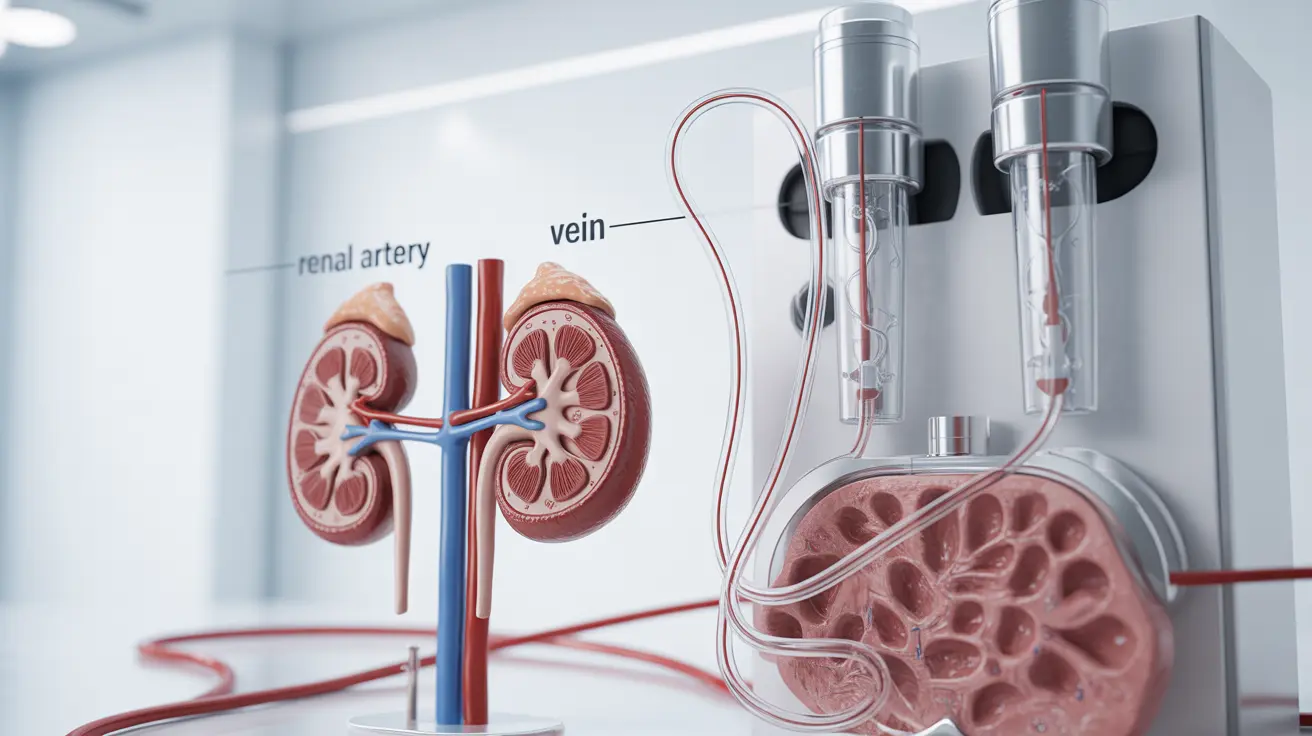Kidney failure is a serious medical condition that affects thousands of people worldwide. Understanding life expectancy with kidney failure is crucial for patients and their families, as it helps in making informed decisions about treatment options and lifestyle adjustments. The survival time can vary significantly depending on several factors, including treatment choice, overall health, and adherence to medical recommendations.
While kidney failure is a severe diagnosis, modern medical advances have made it possible for many people to live longer, more fulfilling lives through various treatment options. Let's explore the factors that influence survival rates and what you can expect with different treatment approaches.
Life Expectancy Without Treatment
Without any form of treatment (dialysis or transplant), life expectancy with kidney failure is typically limited. Most people cannot survive more than a few weeks to months once their kidneys stop functioning completely. This is because the kidneys play vital roles in:
- Removing waste products and excess fluid from the body
- Maintaining electrolyte balance
- Producing hormones that help regulate blood pressure
- Supporting bone health and red blood cell production
However, the exact timeline can vary based on residual kidney function, overall health status, and the presence of other medical conditions.
Understanding Dialysis and Survival Rates
Dialysis can significantly extend life expectancy for people with kidney failure. On average, patients on dialysis can live for many years, though individual outcomes vary considerably. Factors affecting survival on dialysis include:
- Age at the start of dialysis
- Presence of other health conditions (especially diabetes or heart disease)
- Type of dialysis (hemodialysis or peritoneal dialysis)
- Compliance with treatment schedule and dietary restrictions
- Quality of medical care and support
Statistics show that the average life expectancy for dialysis patients can range from 5-10 years, with many patients living even longer with proper care and lifestyle management.
Kidney Transplantation and Long-term Survival
Kidney transplantation generally offers the best long-term survival rates among all treatment options. Successful transplant recipients often experience:
- Better quality of life compared to dialysis
- Longer life expectancy
- Fewer dietary and lifestyle restrictions
- Improved energy levels and overall health
With a successful kidney transplant, many patients can live 15-20 years or longer, particularly if they maintain a healthy lifestyle and follow their medical team's recommendations.
Signs of Progressive Kidney Failure
Recognizing the signs of advancing kidney failure is crucial for timely intervention. Common symptoms include:
- Decreased urine output
- Swelling in legs, ankles, or feet
- Shortness of breath
- Extreme fatigue
- Persistent nausea
- Confusion or difficulty concentrating
- Chest pain or pressure
Factors Influencing Survival
Several key factors can impact how long someone lives with kidney failure:
- Age and overall health status
- Presence of other medical conditions
- Timing of treatment initiation
- Choice of treatment method
- Adherence to prescribed medications and dietary restrictions
- Access to quality healthcare
- Support system and lifestyle factors
Frequently Asked Questions
How long can a person live with kidney failure without dialysis or a transplant?
Without treatment, survival time is typically limited to a few weeks or months once kidneys completely fail. However, this can vary based on residual kidney function and overall health status.
What is the average life expectancy for someone on dialysis for kidney failure?
The average life expectancy on dialysis ranges from 5-10 years, though many patients live longer. Individual outcomes depend on factors such as age, overall health, and treatment compliance.
How does a kidney transplant affect survival compared to staying on dialysis?
Kidney transplantation generally offers better survival rates than dialysis, with many recipients living 15-20 years or longer post-transplant. The success rate is highest with living donor kidneys.
What symptoms indicate that kidney failure is progressing to its final stages?
Final stage symptoms include decreased urination, severe swelling, breathing difficulties, extreme fatigue, confusion, and persistent nausea. These symptoms indicate the need for immediate medical attention.
What factors influence how long someone can live with end-stage kidney disease?
Key factors include treatment choice, age, overall health, presence of other medical conditions, treatment adherence, access to healthcare, and lifestyle factors such as diet and exercise.




